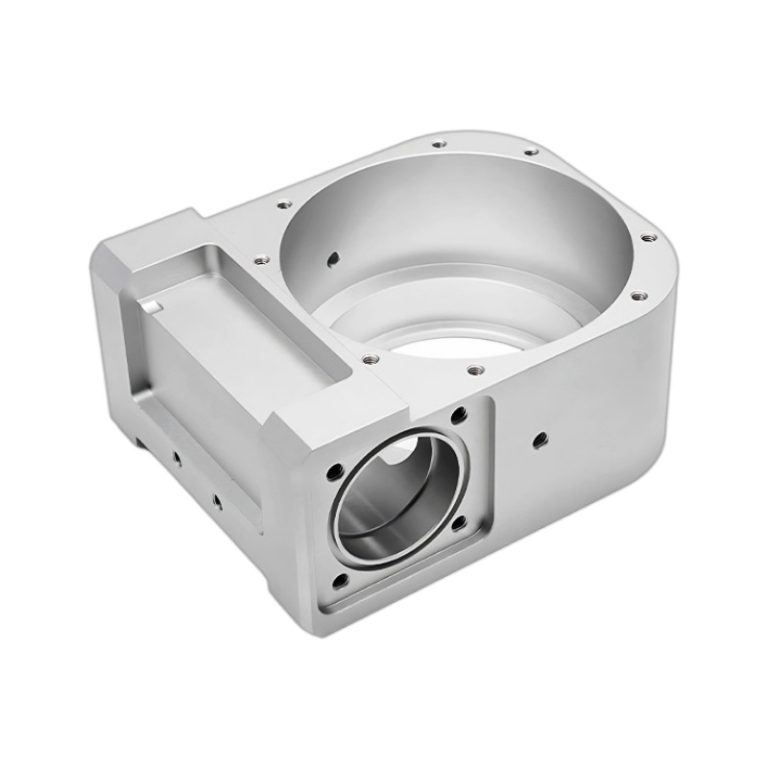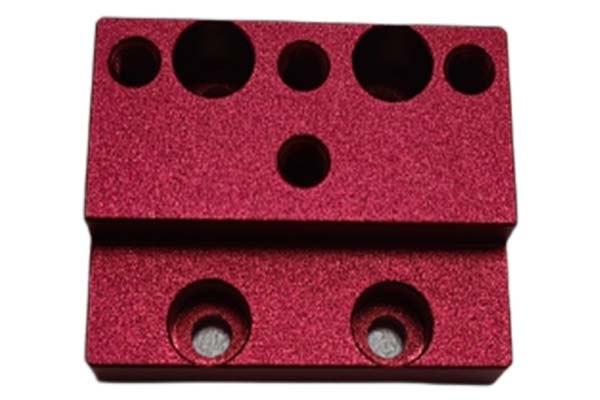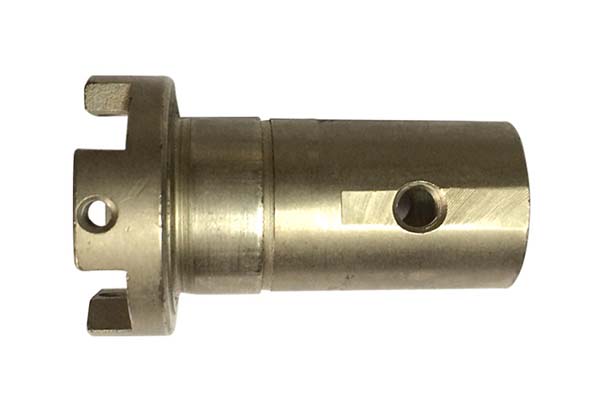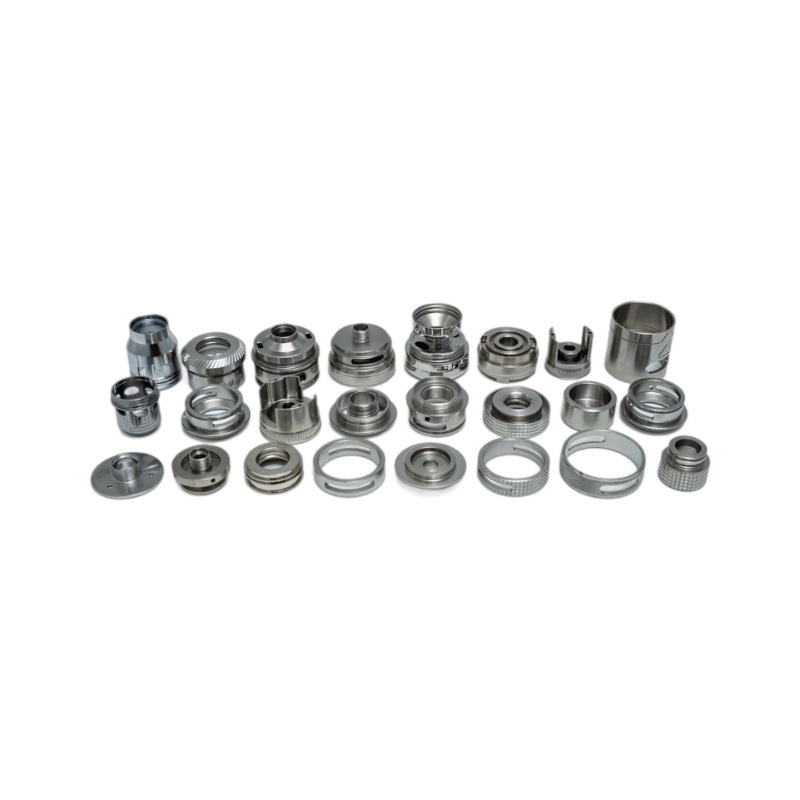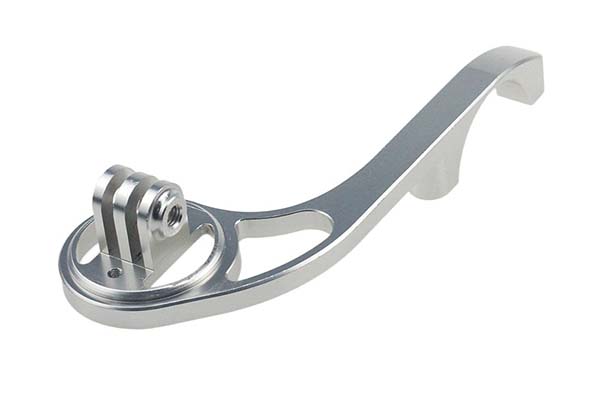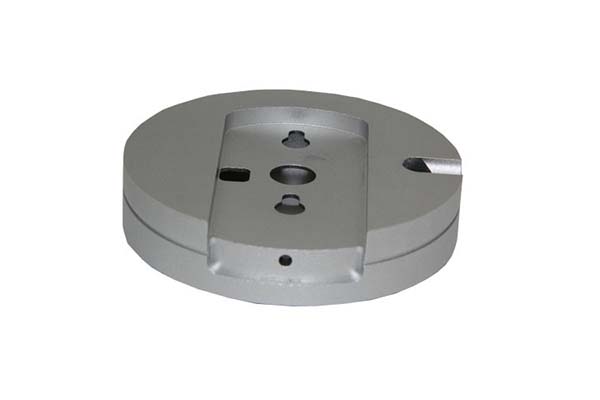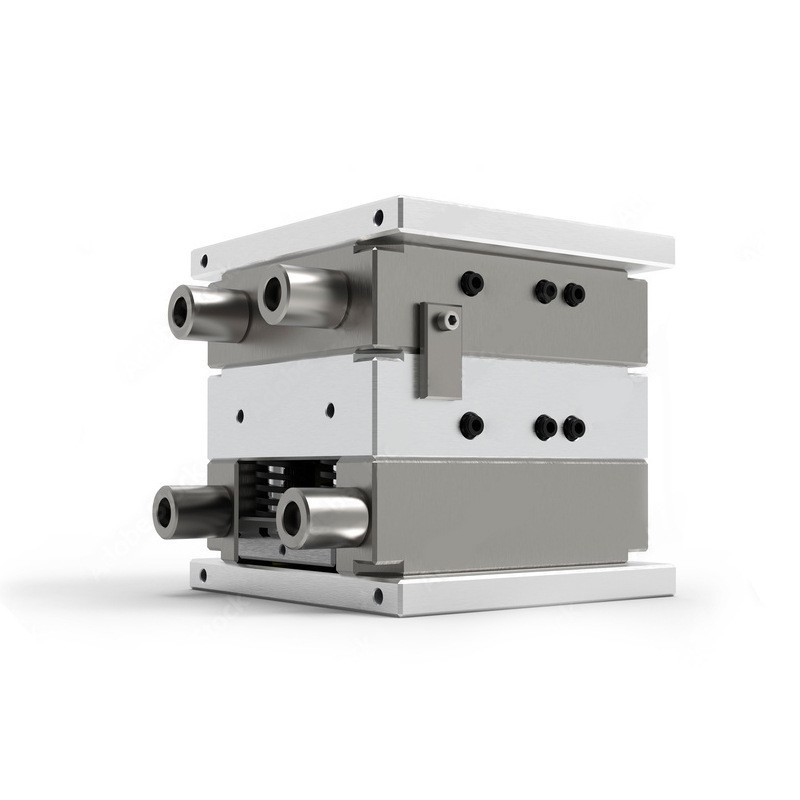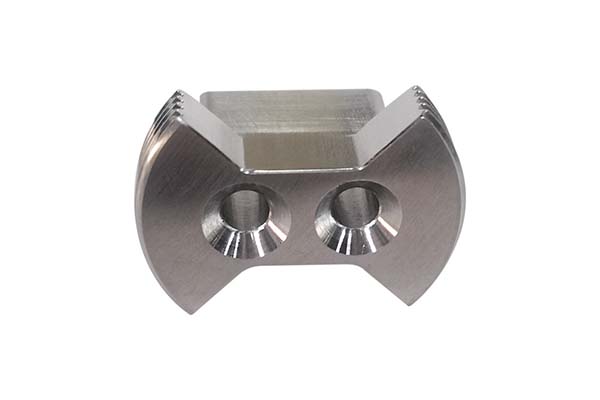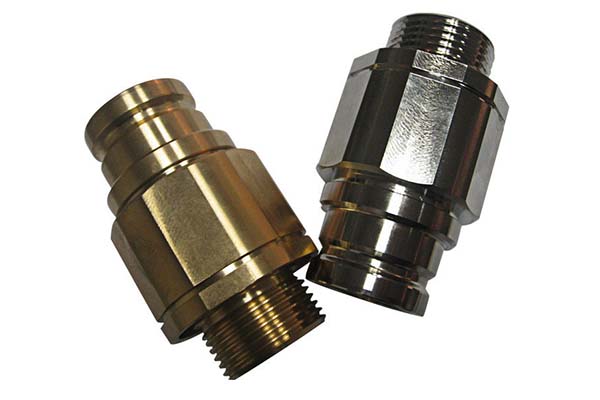Introduction
Unveiling the Significance of CNC Mastery in Precision Engineering
In the fast - evolving landscape of modern manufacturing, precision engineering stands as a cornerstone for industries that demand the highest level of accuracy and quality. At the heart of this revolution lies CNC (Computer Numerical Control) Mastery, a set of skills and knowledge that has transformed the way precision - engineered components are designed, produced, and optimized.
CNC Mastery is not just about operating a machine; it's a deep - seated understanding of the entire manufacturing process, from the initial design concept to the final, flawlessly - crafted product. In precision engineering, where tolerances can be measured in micrometers, the ability to control machine tools with extreme accuracy is non - negotiable. CNC technology allows for the automation of machining processes, which is far beyond the capabilities of traditional manual machining.
For instance, in the aerospace industry, components such as turbine blades require a level of precision that can only be achieved through CNC - controlled machining. These blades must withstand extreme temperatures and high rotational speeds, and even the slightest deviation from the design specifications can lead to catastrophic failures. With CNC Mastery, manufacturers can produce these critical components with a repeatability and accuracy that ensures the safety and efficiency of aircraft engines.
In the medical device industry, precision is equally crucial. Implants, surgical instruments, and diagnostic equipment all demand components that are manufactured to exacting standards. CNC - mastered processes enable the creation of intricate and highly precise parts, such as hip implants with customized geometries to fit individual patients perfectly, reducing the risk of rejection and improving patient outcomes.
As Yigu Technology delve deeper into this article, we will explore in detail how CNC Mastery is shaping precision engineering. We'll look at the technological advancements that have made CNC machining so precise, the skills required to achieve CNC Mastery, and the real - world applications and benefits it brings to various industries. By the end, you'll have a comprehensive understanding of why CNC Mastery is an essential element in the toolkit of any precision - engineering professional or manufacturing enterprise.
Understanding CNC Mastery
Decoding the Basics of CNC Technology
CNC, or Computer Numerical Control, represents a revolutionary leap in manufacturing technology. At its core, CNC is a method of controlling machine tools using pre-programmed computer software. In traditional machining, an operator manually controls the movement of the cutting tools on the workpiece. However, with CNC, these operations are automated through a series of numerical instructions.
For Yigu Technology example, consider a CNC milling machine. Instead of an operator physically moving the milling cutter to shape a block of metal, the machine reads a G - code program. G - code is a standardized language used in CNC programming. A simple G - code command like "G01 X10 Y10 Z5 F100" tells the machine to move the cutting tool in a linear interpolation (G01) to the coordinates X = 10, Y = 10, and Z = 5 at a feed rate (F) of 100 units per minute. This level of precise control is far beyond what is achievable through manual operation, as it eliminates human error in movement and speed control.
The CNC system consists of several key components. There is the controller, which is the "brain" of the operation. It interprets the CNC program and sends signals to the servo - motors. These servo - motors are responsible for moving the axes of the machine tool (such as the X, Y, and Z axes in a 3 - axis milling machine). The feedback devices, like encoders, constantly monitor the position of the axes and send this information back to the controller, ensuring that the actual movement of the machine matches the programmed instructions accurately.
The Skills Behind CNC Mastery
Achieving CNC Mastery requires a diverse set of skills that span multiple disciplines.
Programming Skills: Programming is the foundation of CNC operation. A CNC programmer needs to be proficient in G - code and M - code programming. G - codes are used for motion control, while M - codes are for miscellaneous functions such as spindle on/off, coolant on/off, etc. For instance, writing a program to machine a complex 3D part requires a deep understanding of how to create the correct toolpaths. The programmer must consider factors like the shape of the part, the type of material being machined, and the cutting tools available. In modern CNC programming, CAD/CAM (Computer - Aided Design/Computer - Aided Manufacturing) software has become increasingly popular. These software packages allow designers to create 3D models in CAD and then generate the CNC programs automatically in CAM, but a good understanding of the underlying programming principles is still essential.
Machine Tool Operation Skills: Operating a CNC machine tool safely and efficiently is another crucial skill. This includes setting up the machine, loading the workpieces, and changing the cutting tools. A CNC operator must be familiar with the control panel of the machine, which contains buttons, knobs, and a display for entering commands and monitoring the machine's status. They also need to understand how to perform basic maintenance tasks, such as cleaning the machine, checking the lubrication system, and ensuring that the coolant levels are sufficient. For Yigu Technology example, incorrect tool installation can lead to poor surface finish or even tool breakage, so proper tool - changing techniques are vital.
Process Planning Skills: Process planning involves determining the most efficient way to machine a part. The process planner needs to select the right cutting tools, cutting speeds, and feed rates. Different materials require different cutting parameters. For example, machining aluminum typically requires higher cutting speeds compared to steel due to aluminum's lower hardness. The planner also needs to sequence the machining operations in a logical order. For a part with multiple features, such as holes, slots, and contours, the planner must decide whether to drill the holes first, then mill the slots, or vice versa to optimize the machining time and quality.
In summary, CNC Mastery is a combination of technical knowledge and practical skills. These skills work in tandem to enable the production of high - precision components in precision engineering, as we will further explore in the following sections on real - world applications and the future of CNC in precision engineering.
CNC Mastery and Precision in Manufacturing
Achieving Unparalleled Precision
In precision engineering, the ability to achieve high levels of accuracy is of utmost importance. CNC Mastery has revolutionized the manufacturing industry by enabling manufacturers to produce components with tolerances that were once thought to be impossible. When comparing CNC machining to traditional machining methods, the difference in precision is staggering.
For Yigu Technology example, in traditional machining, the typical error margin is around ±0.5mm. This is due to the manual operation involved, where the operator's skill and fatigue can significantly impact the accuracy of the final product. On the other hand, with CNC machining, the error can be reduced to as little as ±0.01mm. This is because CNC machines are controlled by computer programs, which eliminate human error in movement and speed control.
To put this into perspective, consider the production of micro - components for the electronics industry. These components are often extremely small, with some measuring less than a millimeter in size. A tolerance of ±0.5mm in traditional machining would be catastrophic for these components, rendering them completely unusable. In contrast, the high precision of CNC machining, with its ±0.01mm tolerance, ensures that these micro - components can be produced with the exact dimensions required, leading to better - functioning electronic devices.
Consistency in Production
Another significant advantage of CNC Mastery in precision engineering is the consistency it offers in production. Consistency is crucial, especially in industries where large quantities of identical components need to be produced.
Take the automotive industry as an example. When manufacturing engine components such as pistons, thousands of units need to be produced with the exact same dimensions. With traditional machining, it is very difficult to ensure that each piston is identical due to the variability in human operation. However, with CNC - mastered processes, the computer - controlled machines can produce piston after piston with minimal size variation. In a production run of 10,000 pistons, the size error for each piston can be kept within a range of ±0.005mm. This high level of consistency ensures that the engines run smoothly, reducing vibrations and improving fuel efficiency.
The consistency in CNC - produced components also leads to better - fitting assemblies. In the aerospace industry, where components are assembled to create complex structures, a lack of consistency can lead to dangerous situations. CNC - mastered manufacturing processes ensure that all components fit together perfectly, enhancing the safety and performance of aircraft. For instance, when assembling the wing sections of an aircraft, the precision - made components produced by CNC machines can be joined together with a gap tolerance of less than 0.02mm, ensuring the integrity of the wing structure during flight.
Case Studies: Real - World Applications
Aerospace Industry
The aerospace industry is one of the prime beneficiaries of CNC Mastery in precision engineering. Aircraft engines, for example, are complex systems with components that must operate under extreme conditions. Turbine blades, a crucial part of jet engines, are designed to withstand temperatures as high as 1,700°C in some advanced engines. These blades also experience high centrifugal forces due to the high - speed rotation of the turbine, which can reach speeds of up to 15,000 revolutions per minute in commercial jet engines.
CNC - mastered machining processes play a vital role in manufacturing these turbine blades. Traditional machining methods struggle to achieve the complex aerodynamic shapes and tight tolerances required for turbine blades. With CNC technology, manufacturers can produce blades with a precision of up to ±0.001 inches in critical dimensions. This high level of precision ensures that the blades can efficiently convert the energy from the hot gases into rotational energy, improving the overall efficiency of the engine.
Moreover, CNC - produced turbine blades have better consistency in quality. In a study comparing traditional and CNC - manufactured turbine blades, it was found that the performance variation among CNC - produced blades was reduced by 60%. This reduction in variation leads to more stable engine operation, fewer vibrations, and increased reliability. For airlines, this means less engine maintenance and lower operating costs, as the likelihood of in - flight engine failures due to blade - related issues is significantly decreased.
Medical Field
In the medical field, CNC Mastery has transformed the manufacturing of various devices, from prosthetics to surgical implants.
Prosthetics: For patients who have lost limbs, a well - fitting and functional prosthetic can significantly improve their quality of life. CNC - mastered manufacturing allows for the creation of custom - made prosthetics. Using 3D scanning technology, the shape of the patient's residual limb can be accurately captured. This data is then used to create a CAD model, which is translated into a CNC program. The result is a prosthetic that fits the patient perfectly, with a tolerance of as little as ±0.5mm in key areas. This high - precision fit reduces discomfort and skin irritation for the patient. A case study on amputee patients showed that those who received CNC - made prosthetics reported a 30% increase in their ability to perform daily activities compared to those with conventionally - made prosthetics.
Surgical Implants: Implants such as hip and knee replacements also benefit greatly from CNC Mastery. These implants need to be made with extreme precision to ensure proper fit within the patient's body and long - term functionality. Hip implants, for instance, are made from materials like titanium alloy due to its biocompatibility and strength. CNC machining can create the complex surface geometries of hip implants with a precision of ±0.05mm. This precision ensures that the implant can integrate well with the patient's bone structure, reducing the risk of implant loosening or rejection. According to medical research, the failure rate of CNC - made hip implants within the first five years is only 2 - 3%, compared to 5 - 7% for implants made with less precise manufacturing methods.
In addition to prosthetics and implants, CNC - mastered processes are used to manufacture surgical instruments. These instruments, like microsurgical forceps, require a high level of precision in their design and manufacture. CNC machining can produce forceps with tips that are precisely shaped to handle delicate tissues during surgery, with tolerances in the sub - millimeter range. This precision allows surgeons to perform complex procedures with greater accuracy, leading to better patient outcomes.
FAQs
Can CNC Machines Handle a Wide Variety of Materials?
Yes, CNC machines can handle a wide variety of materials. Metals are commonly machined on CNC machines. For Yigu Technology example, aluminum is a popular choice due to its low density and good machinability. CNC - machined aluminum parts are used in the aerospace, automotive, and electronics industries. Steel, both carbon steel and alloy steel, can also be easily machined on CNC machines. Stainless steel, with its corrosion - resistant properties, is often machined into components for the food, medical, and marine industries.
Plastics are another type of material that CNC machines can handle effectively. Acrylic, for instance, is often used to create display cases, signs, and prototypes. CNC - machined acrylic parts can have a high - quality finish and precise dimensions. Polycarbonate, known for its strength and impact resistance, is used in applications such as safety equipment and automotive components.
Composites, which are made up of two or more different materials, can also be machined on CNC machines. Carbon - fiber composites, for example, are used in high - performance applications like aerospace and sports equipment. CNC machining allows for the precise shaping of these composites without damaging the delicate fiber structure. Even wood can be machined on CNC machines, often used in the furniture and cabinet - making industries to create intricate designs. In summary, the adaptability of CNC machines to different materials makes them a versatile choice for precision engineering across various industries.
